Census 1921 - Give Peace a Chance
Give Peace a Chance
DEFENCE FORCE AND THE INDUSTRIAL CRISIS
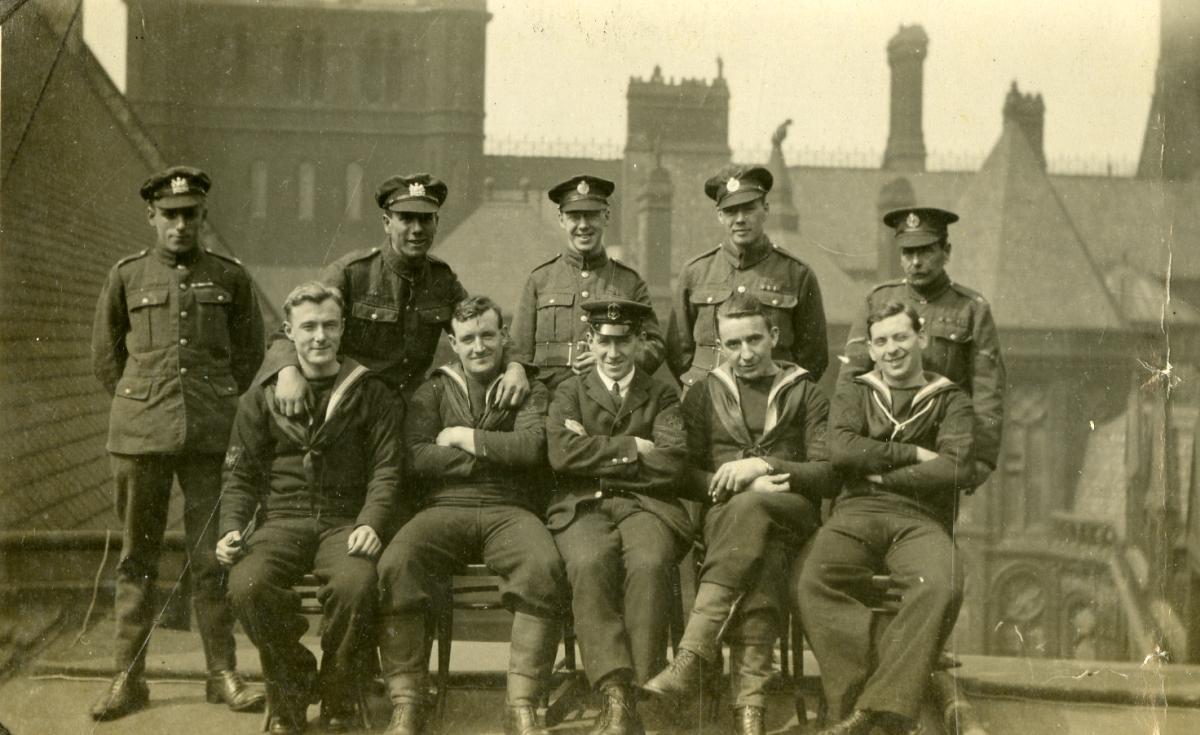
Image with the kind permission of: Manchester Libraries, Information and Archives
The Defence Force was established in April 1921 when the British Government put in place the 'Emergency Powers Act 1920'. This directive was triggered in order to overcome an industrial crisis in the coal mining industry and a threat of civil unrest. The Government was planning to decontrol the mines and railways in 1921. The coal industry was making heavy losses and owners argued that wage cuts were needed. On 1st April 1921 the Miners Federation of Great Britain (MFGB) refused terms of the wage dispute and miners were subsequently 'locked out' of the pits. Their leaders appealed to railwaymen and transport workers for a sympathy strike but on 15 April 1921 they refused and this became known as 'Black Friday'. This resulted in the end of the unions 'Triple Alliance'.
What was the Emergency Powers Act
The Emergency Powers Act 1920 was an Act of Parliament in the United Kingdom which gave the power to the Sovereign in certain circumstances in order to declare a state of emergency by proclamation. This Act was first used in 1921. The Lloyd George government declared a state of emergency and sent troops to areas where miners were striking.
An article in the The Nottingham Journal of 9 April 1921 stated that the steps taken by the Government to meet the rising emergency of the industrial crisis were as follows:
- A national emergency proclaimed that Army Reserves were to be called up; Special Defence Force to be embodied; appeal issued for special constables and volunteers for administrative services; All military and naval leave stopped;
- Power to: seize land, building and general utility work;
- Seize coal mines and colliery property, tramways and light railways;
- Control Canals railways, shipping and transport generally;
- Close ports and harbours;
- Seize food or forage supplies;
- Fix maximum coal and food process; ration food and coal; prohibit hording; requisition horses and vehicles.
- Prohibit or regulate sale of motor spirit and seize supplies; prohibit sale of fire-arms and ammunition and carrying of arms;
- Refuse transmission of telegrams, prohibit meetings, arrest without warrant any one endangering public safety; search persons and vehicles; close premises.
- It is an offence during a state of emergency to: carry firearms at a meeting; injure any public building; railway, telegraph; bridge, tramway or works. Foment mutiny, sedition, disaffection among the forces, impede distribution of food, fuel, water.
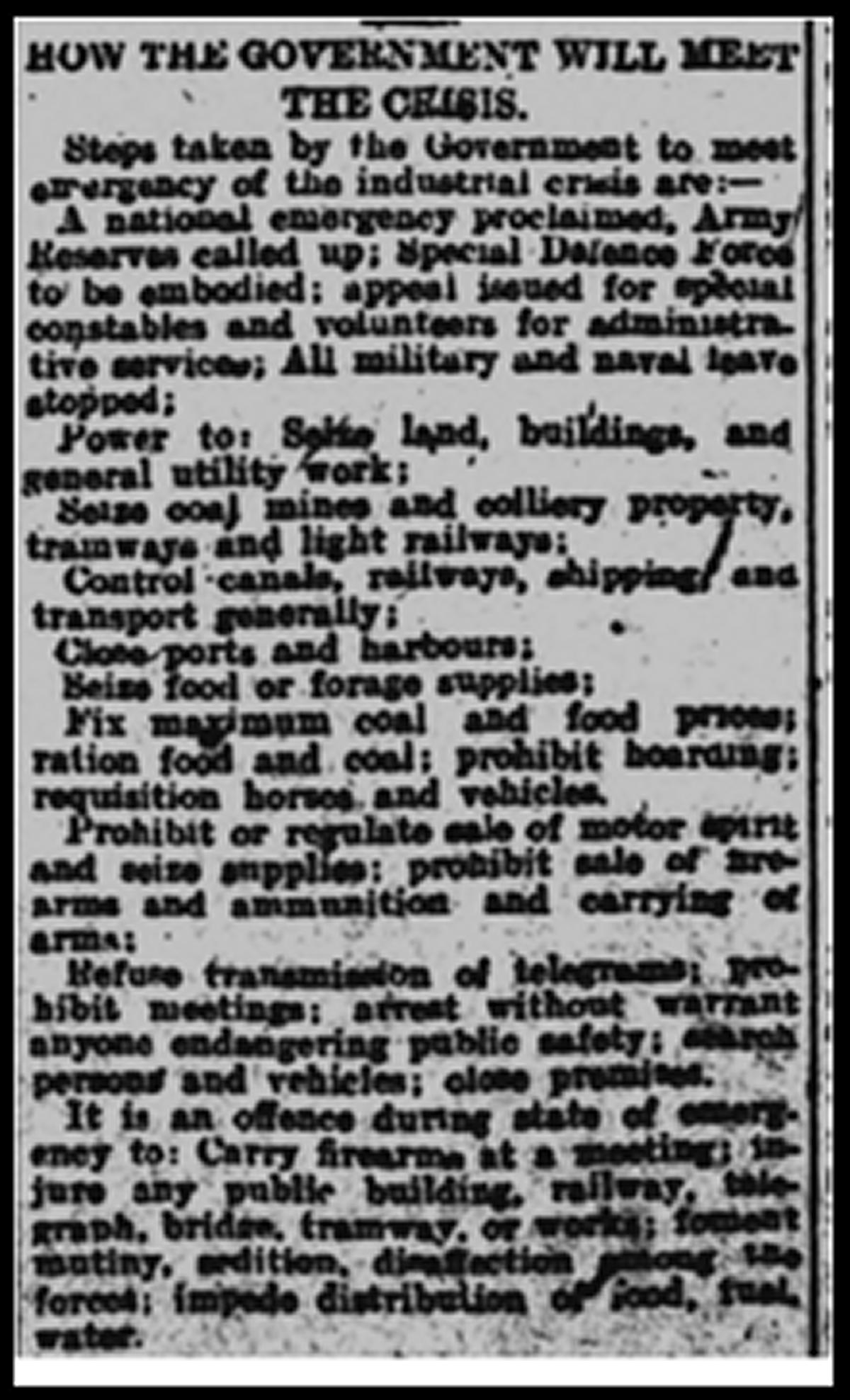
Nottingham Journal 9 April 1921
Who joined the Defence Force and what were they expected to do?
The Government asked for fit, loyal male citizens between 18-40 capable of bearing arms, Territorial's, ex-service men and "others" to enlist as volunteers. Navy, Army and Air Force Reserves (Class B) were called up immediately. 300,000 men were recruited, many were out of work miners.
Defence Force volunteers were requested for transport work to maintain essential national and municipal services. Special Constables were required to support the Police in order to maintain law and order.
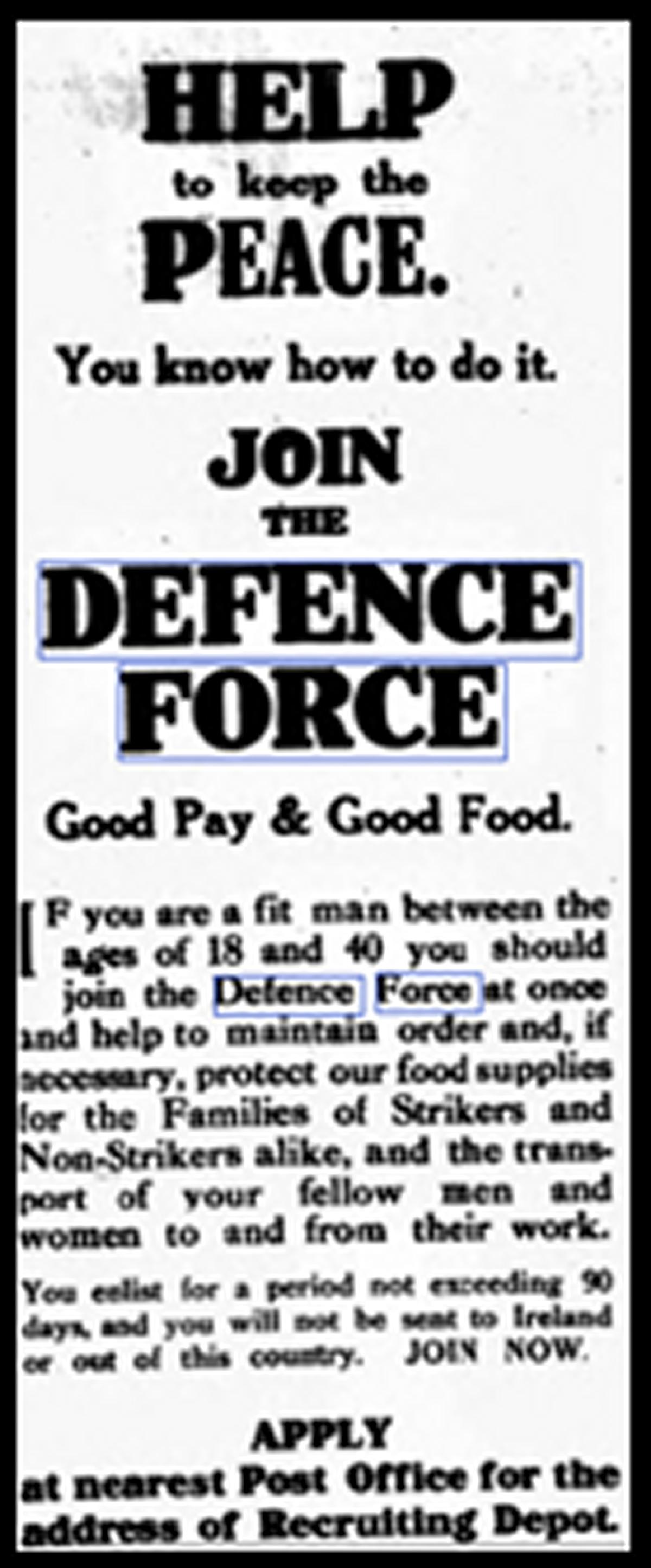
Manchester Evening News 15 April 1921
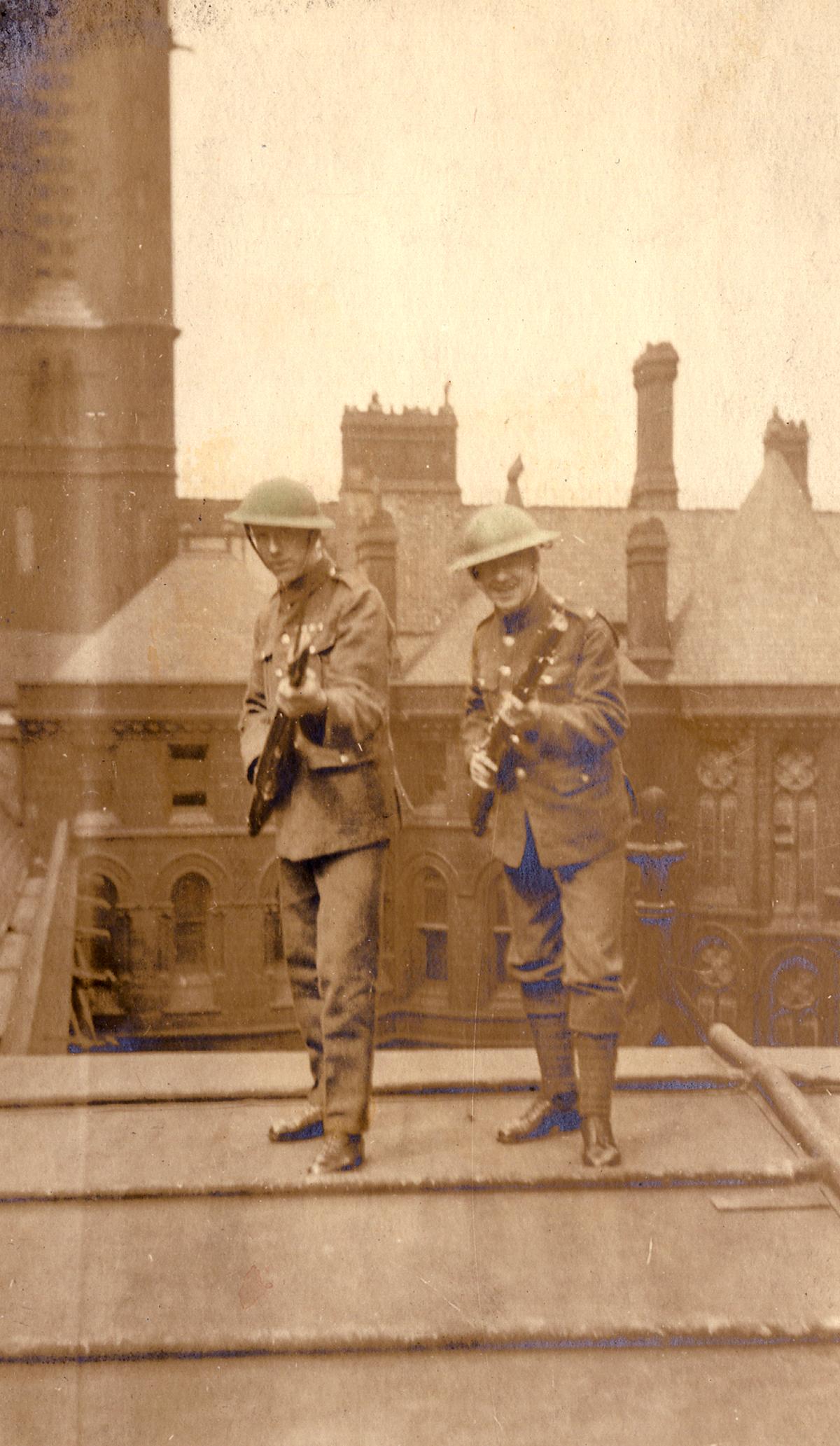
Image with the kind permission of: Manchester Libraries, Information and Archives
What were the terms?
Service in the Defence Force was to be temporary and enlistment was for 90 days at ordinary Army pay with allowances.
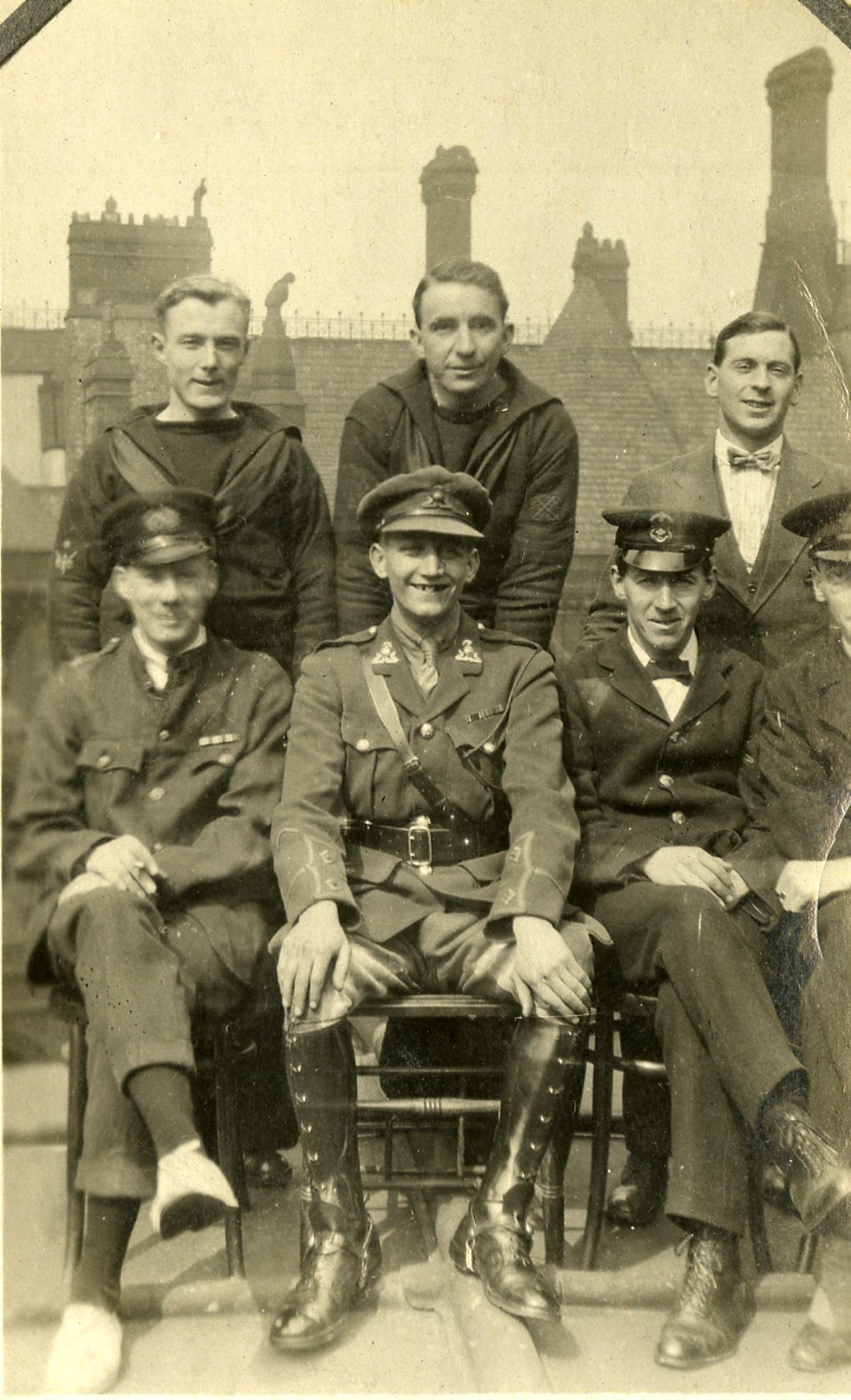
All men were to get the pay and rank of an Army private
Image with kind permission of: Manchester Libraries, Information and Archives
Rumours
The Government was forced to make a declaration to reassure people that the Defence Force was not being raised for service in Germany or Ireland. On the 8th of April the Prime Minster David Lloyd George stated in the House of Commons "an appeal was made to patriotic citizens to enlist in an Emergency Force recruited not for the purpose of interfering in any wage dispute, but solely to support the police in the fulfilment of their duties to the community".
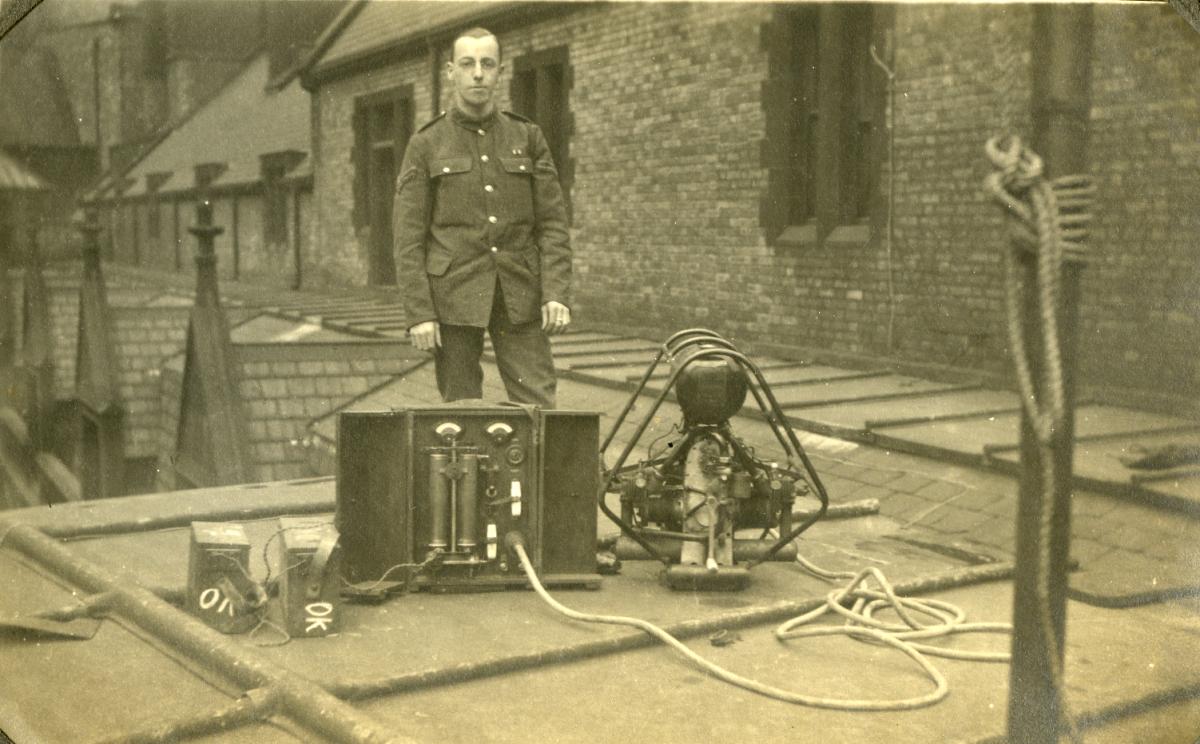
Image with kind permission of: Manchester Libraries, Information and Archives
Who was affected by the crisis?
Looking through the historic newspapers it is interesting to see the vast variety and how far ranging this crisis was: from the closure of large steel works in the North East of England to the rationing of coal for domestic use. One news item tells us that brewing was suspended at the Burton on Trent breweries owing to uncertainty with transport, the Cunard Line cancelled their sailing of the 'Berengaria' owing to the stopping of the coal trade, there were reduced train services, and bakeries were concerned about the shortage of coal supplies.
Demob
It was not until 28th June, after three months that 'lock out' ended and the defeated miners returned to work. The Defence Force was finally demobilised on the 9th July 1921.
Further information:
Black Friday: https://en.wikipedia.org/wiki/Black_Friday_(1921)
https://www.historytoday.com/archive/black-friday-1921
- Hits: 1478